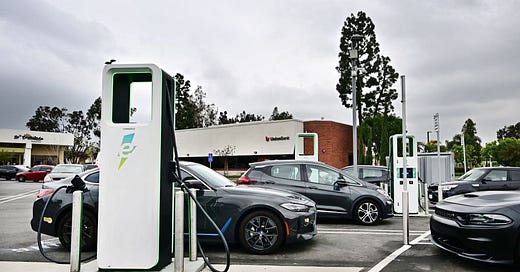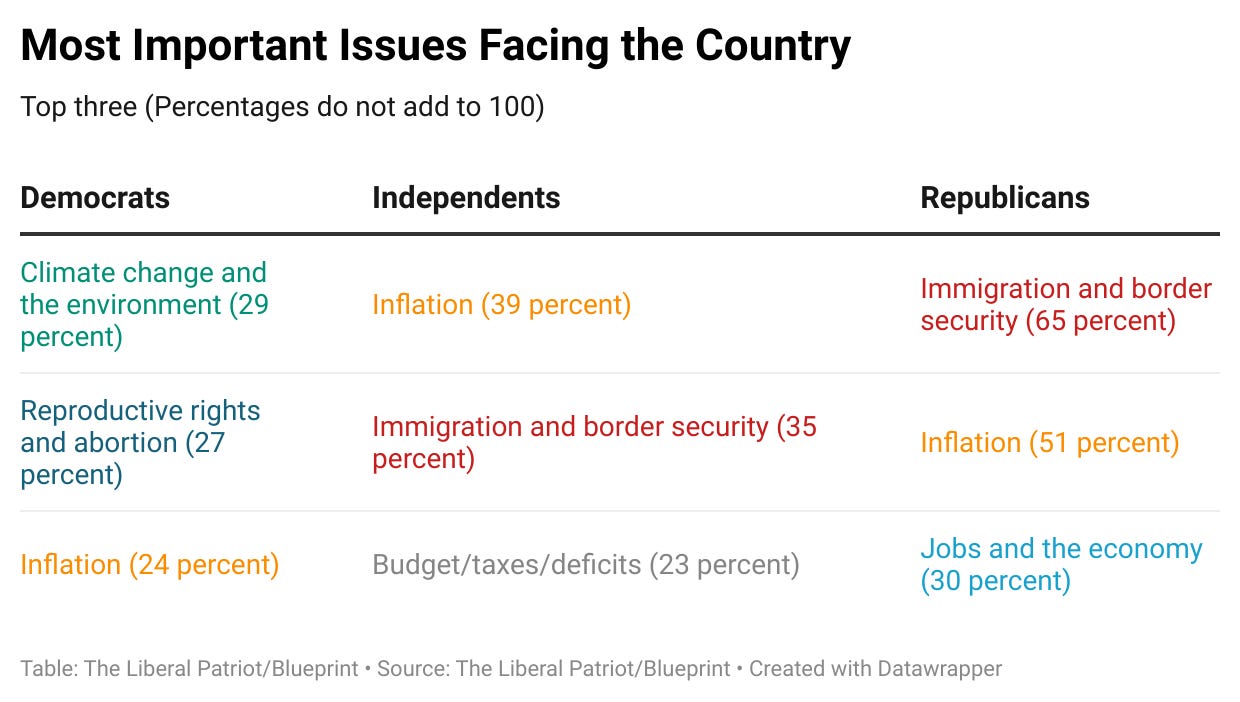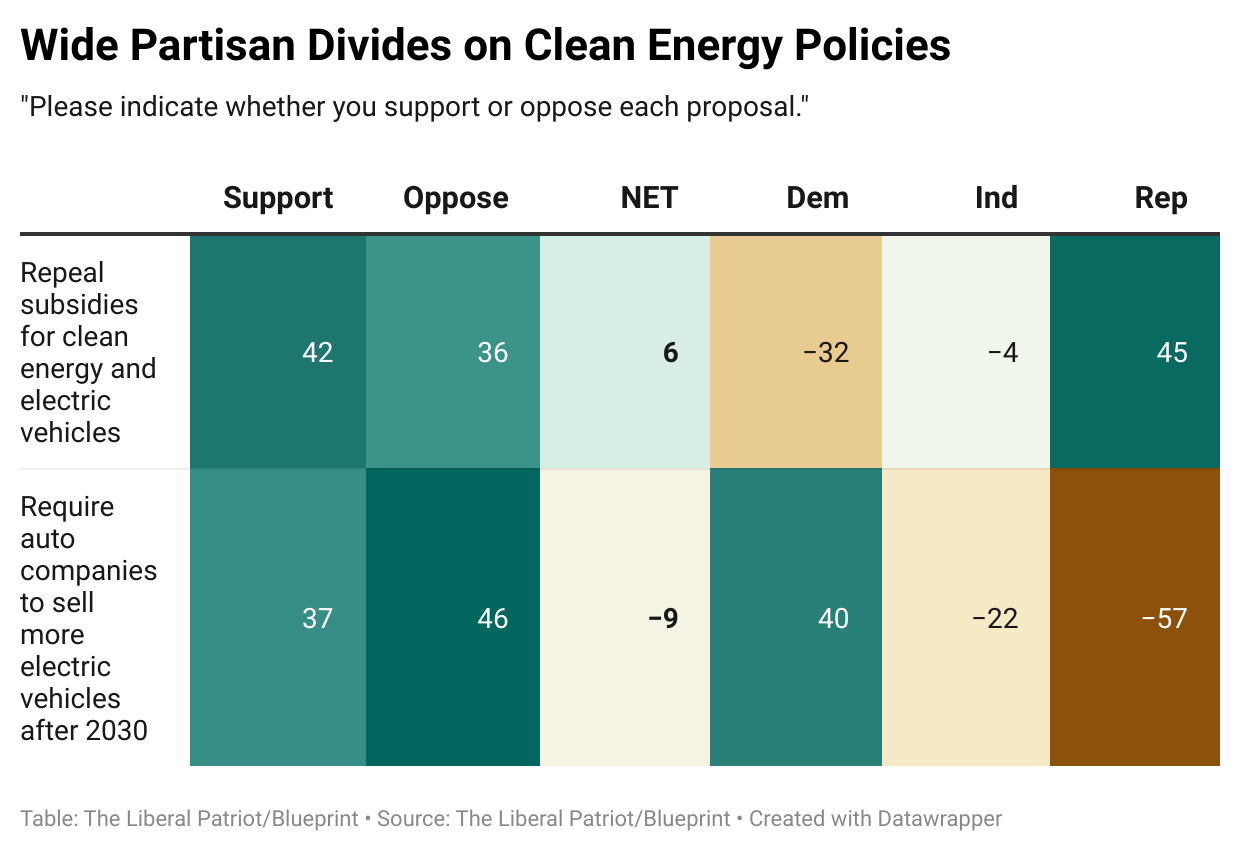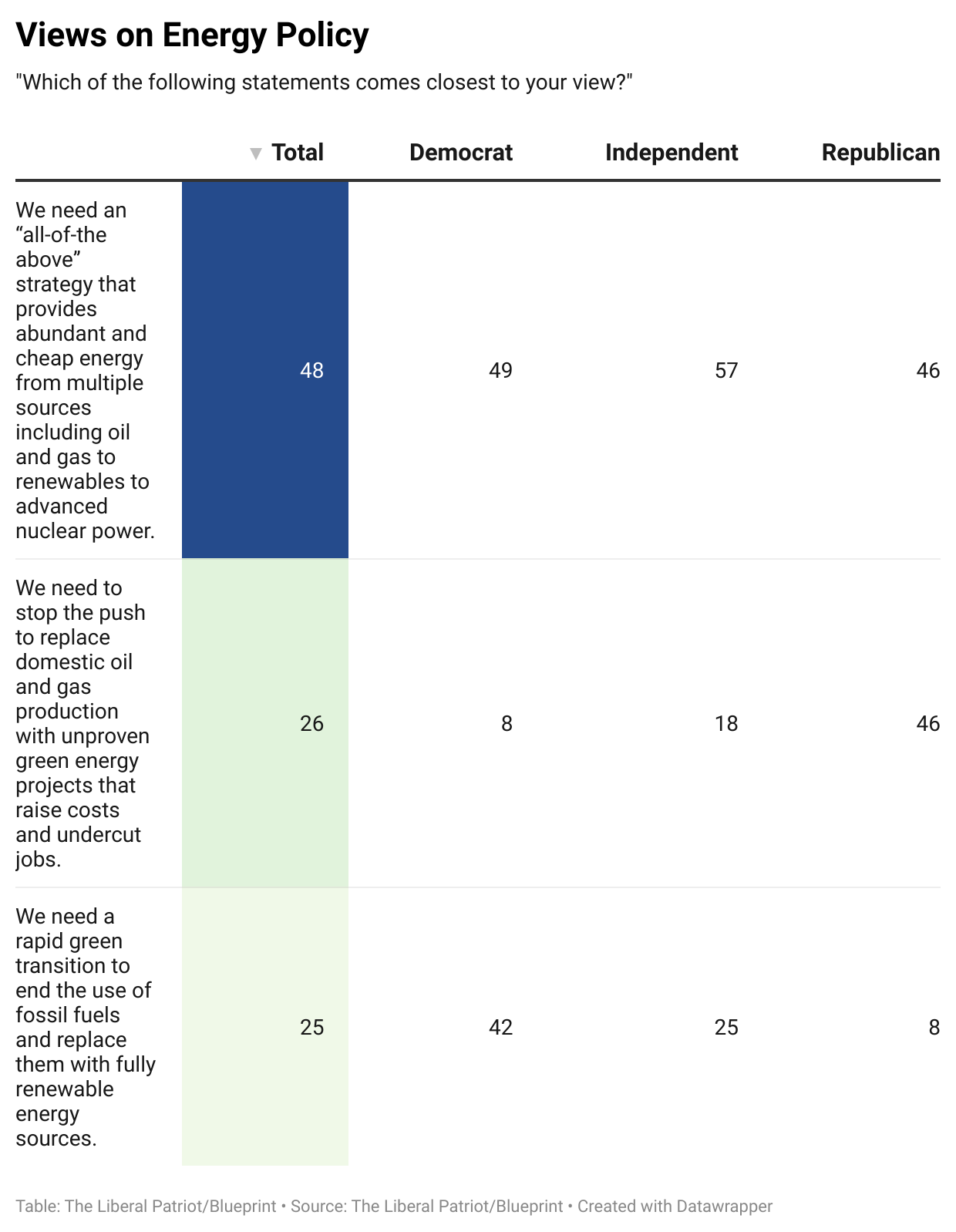The Partisan Chasm on Energy Policies
“All of the above” is the only energy approach with widespread support.

Few issues divide Democratic and Republican voters more than climate change and the clean energy transition. Partisan voters strongly disagree about both the importance of climate change as an issue and recent governmental policies to address it.
Examining TLP’s recent survey of 4038 registered voters, conducted with our partners at Blueprint and YouGov, “climate change and the environment” is selected as one of the three most important issues facing the country by only 16 percent of voters overall—well below concerns about immigration, inflation, and the economy and other worries about the budget and crime.
However, as seen in the table above, there are noticeable differences in the priority placed on climate change by party identification. Democrats put “climate change and the environment” at the top of their list of the most important issues facing the country today (chosen by 29 percent) followed by “reproductive rights and abortion” (27 percent) and “inflation” in third place (24 percent). In contrast, independent voters and Republicans—by wide margins—both rank either “inflation” or “immigration and border security” as the top two issues facing the country. Climate change falls far down the list of important issues for both, chosen by only 12 percent of independents and a mere four percent of Republicans.
Partisan gaps are even more apparent in terms of potential ideas on climate and energy put forth by either Biden and Democrats or Trump and Republicans.
For example, the table below shows overall support and opposition to two ideas on energy and electric vehicles tested among a list of 40 overall proposals. By a six-point net margin overall, voters support former president Donald Trump’s proposal to “repeal subsidies for clean energy and electric vehicles.” While this idea is supported on net by 45 points among Republicans, Democrats oppose the notion by a 32-point net margin with independent voters basically split and slightly more opposed by a four-point net margin.
The Biden administration’s proposed tailpipe regulations that would “require auto companies to sell more electric vehicles after 2030” is one of the worst performing ideas in the entire poll—opposed by a nine-point net margin among all voters. But the partisan divide on EVs is stark: Democrats support the idea of requiring more electric vehicle sales by a 40-point net margin while Republicans oppose it by a 57-point net margin with independents also opposed by a 22-point net margin.
Is there any way forward that might garner more consensus? Yes.
Looking at three possible approaches to American energy policy put forth to survey respondents, nearly half of voters overall (48 percent) say, “We need an ‘all-of-the above’ strategy that provides abundant and cheap energy from multiple sources including oil and gas to renewables to advanced nuclear power,” comes closest to their own view including 49 percent of Democrats, 57 percent of independents, and 46 percent of Republicans.
In contrast, two more ideologically extreme positions of essentially stopping all green energy projects (put forth from the right) or rapidly replacing all fossil fuels (put forth by the left) attract only around one quarter support from voters, respectively. Again, these ideas generate big partisan divides: 46 percent of Republicans say the idea of stopping green energy projects comes closest to their view idea while 42 percent of Democrats back the idea of rapidly replacing fossil fuels.
Attitudes about the importance of climate change and policies to address it have clearly hardened on both sides of the partisan divide. If government leaders want to bridge the gap—and build on basic consensus ideas—they should promote “all of the above” policies that deploy a mix of options and more pragmatic approaches to energy and climate.
Anything else will likely fall into the deep canyon separating the two parties.









In a democracy it would matter what the voters want. Not here.
I increasingly believe that the point of electrification isn't the environment. It's rationing. There simply isn't enough renewable electricity right now to supply the economy. It's also not likely we'll get there any time soon. But there is probably enough to support the lifestyle that environmental activists think Americans should have. And government officials, who are largely Democrats, will get to decide what's essential and what's not.